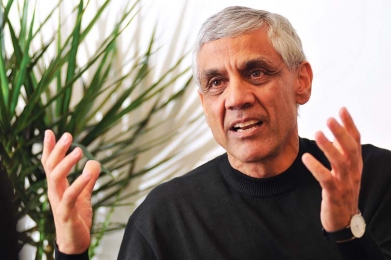 The DC Council recently passed a resolution recognizing the significant
contributions of TBED21, Inc., an
organization dedicated to keeping the District economically competitive
in the 21st century, with a strong focus on underdeveloped and
disadvantaged communities.
The DC Council recently passed a resolution recognizing the significant
contributions of TBED21, Inc., an
organization dedicated to keeping the District economically competitive
in the 21st century, with a strong focus on underdeveloped and
disadvantaged communities.
The text of the Ceremonial Resolution, introduced by At-Large Councilmember Kwame Brown, is as follows:
TBED21 Readiness Recognition
Resolution of 2010
To recognize the need to ensure that the District of Columbia is
economically competitive in the twenty-first century and to acknowledge
the significant contributions of TBED21, Inc., in efforts to integrate
policy and federal funding opportunities for the nation’s capital.
WHEREAS, the Council of the District of Columbia recognizes the need
to develop a more integrated policy and programmatic agenda towards
technology-based economic development that ensures the District of
Columbia’s economic competitiveness in the 21st century;
WHEREAS, Technology Based Economic Development for the 21st Century
-TBED21, Inc., recognizes the District of Columbia as an economically
vibrant 21st century knowledge city with a diverse citizenry
representing countries from around the world;
WHEREAS, TBED21, Inc. has proposed ideas to the Government of the
District of Columbia, including Office of the Mayor and District
agencies: Office of the Deputy Mayor for Planning and Economic
Development; Office of the Deputy Mayor for Education; Office of the
State Superintendent for Education; University of the District of
Columbia and its Community College;
WHEREAS, TBED21, Inc. has engaged various federal agencies including
the U.S. Department of Education, U.S. Department of Commerce and the
U.S. Department of Labor to assist the development of a 21st century
tech-based economic development agenda for the District of Columbia;
WHEREAS, TBED21, Inc. has made tremendous strides in coordinating
Science, Technology, Engineering and Math (STEM) education, STEM
workforce development, entrepreneurship, innovation, tech-based
commercialization and entrepreneurship in the District of Columbia;
RESOLVED, BY THE COUNCIL OF THE DISTRICT OF COLUMBIA, that this
resolution may be cited as the “TBED21 Readiness Recognition Resolution
of 2010”.
 When it comes to government investing in cleantech, the feds aren't
the only game in town.
When it comes to government investing in cleantech, the feds aren't
the only game in town. 
 In a
In a  The Lincoln Economic Development Association (LEDA) is looking to plant a garden, but not the kind filled with fruits and vegetables that grow in your backyard.
The Lincoln Economic Development Association (LEDA) is looking to plant a garden, but not the kind filled with fruits and vegetables that grow in your backyard.


 The United States and its higher education systems are on the verge
of a "new paradigm" in defining the roles of colleges and universities
in promoting state and regional economic development, says
The United States and its higher education systems are on the verge
of a "new paradigm" in defining the roles of colleges and universities
in promoting state and regional economic development, says  I [Eric Wesoff] wrote a mildly
antagonistic
I [Eric Wesoff] wrote a mildly
antagonistic 


 Last week, I [Stefan Lindegaard] attended an open innovation session led by General Mills. Among the distributed materials, I found nine tips for open innovation by Peter Erickson, their Sr. VP of Innovation, Technology and Quality.
Last week, I [Stefan Lindegaard] attended an open innovation session led by General Mills. Among the distributed materials, I found nine tips for open innovation by Peter Erickson, their Sr. VP of Innovation, Technology and Quality.
 Brian Darmody considers himself an entrepreneurial bureaucrat - and he doesn't think that's an oxymoron.
Brian Darmody considers himself an entrepreneurial bureaucrat - and he doesn't think that's an oxymoron.
 In India, it is easier to raise two million dollars than it is to raise $200,000.
In India, it is easier to raise two million dollars than it is to raise $200,000.
 Bill Carleton and Joe Wallin: Senator Christopher Dodd's massive financial regulatory reform bill is back and it's even uglier than before for startup companies trying to raise seed capital. Ugly for startups?
Bill Carleton and Joe Wallin: Senator Christopher Dodd's massive financial regulatory reform bill is back and it's even uglier than before for startup companies trying to raise seed capital. Ugly for startups? Researchers at Stanford University have just made
Researchers at Stanford University have just made  It used to be, if you were serious about starting a tech company, you went to Silicon Valley. But emerging entrepreneurial hubs around the country are giving startup aspirants options. In this series, we talk to leading figures in those communities about what makes them tick. Here, part nine in our series.
It used to be, if you were serious about starting a tech company, you went to Silicon Valley. But emerging entrepreneurial hubs around the country are giving startup aspirants options. In this series, we talk to leading figures in those communities about what makes them tick. Here, part nine in our series. Last week’s Global Entrepreneurship Congress (GEC) in Dubai was a historic gathering not only because -- under the patronage of Sheik Nahayan Mabarak Al Nahayan of the UAE -- it brought together entrepreneurship leaders from nearly 100 nations, but because it heralded a new era of global commitment to this field.
Last week’s Global Entrepreneurship Congress (GEC) in Dubai was a historic gathering not only because -- under the patronage of Sheik Nahayan Mabarak Al Nahayan of the UAE -- it brought together entrepreneurship leaders from nearly 100 nations, but because it heralded a new era of global commitment to this field.